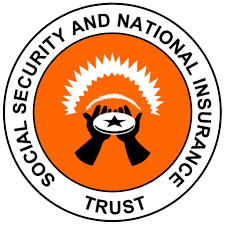
![]()
For copyright infringement to be established, the alleged copyright owner must be able to prove a causal connection between their work and the alleged infringing work (i.e, a high likelihood that the defendant copied their work and substantial taking by the defendant).
The Nigerian Copyright Commission (NCC), has filed charges against MTN Nigeria, its CEO, Karl Toriola and three others over alleged copyright infringement.
The charge with Number FHC/ABJ/CR/111/2024 filed in the Federal High Court, Abuja Division was obtained by the News Agency of Nigeria (NAN) on Monday.
The three other defendants in the case are Nkeakam Abhulimen, Fun Mobile Ltd., and Yahaya Maibe.
In the three-count charge, NCC alleged that the defendants, between 2010 and 2017 “offered for sale, sold and traded for business’’, infringed the musical works of an artist, Maleke Idowu Moye without his consent and authorization.
The Commission alleged that the defendants used musical works and sound recordings of Maleke with subsisting copyright, as Caller Ring Back Tunes, without the authorization of the artiste.
The musical works and sound recordings of the musician allegedly infringed upon included; 911, Minimini-wanawana, Stop racism, Ewole, 911 instrumental, Radio, Low waist, and No bother.
The defendants were also alleged to have distributed the musical works to their subscribers, without authorisation, thereby, infringing on the rights of the artiste.
In the third count, the defendants were alleged to have in their possession, other than for their private or domestic use, the musical works and sound recordings of the artiste.
According to NCC, the alleged offences are contrary to and punishable under section 20 (2) (a) (b) and (c) of the Copyright Act, Cap. C28, Laws of the Federation of Nigeria, 2004.
However, the case is yet to be assigned to any judge and no date has been fixed for mention, according to the NAN report.
Section 36 of the Copyright Act 2022 provides for a wide range of acts that constitute infringement. Generally, the Act recognizes the doing, without the permission of the copyright owner, of any of the exclusive rights held by copyright as constituting copyright infringement.
For copyright infringement to be established, the alleged copyright owner must be able to prove a causal connection between their work and the alleged infringing work (i.e, a high likelihood that the defendant copied their work and substantial taking by the defendant).
Section 37(2) of the Act provides that, in a civil enforcement action, the party claiming shall be entitled to several reliefs, including damages, injunction, accounts or other remedies as is available in corresponding proceedings in respect of infringement of proprietary rights. Other available remedies include orders for inspection and seizure, forfeiture and destruction.
Source: Source:techfocus24



